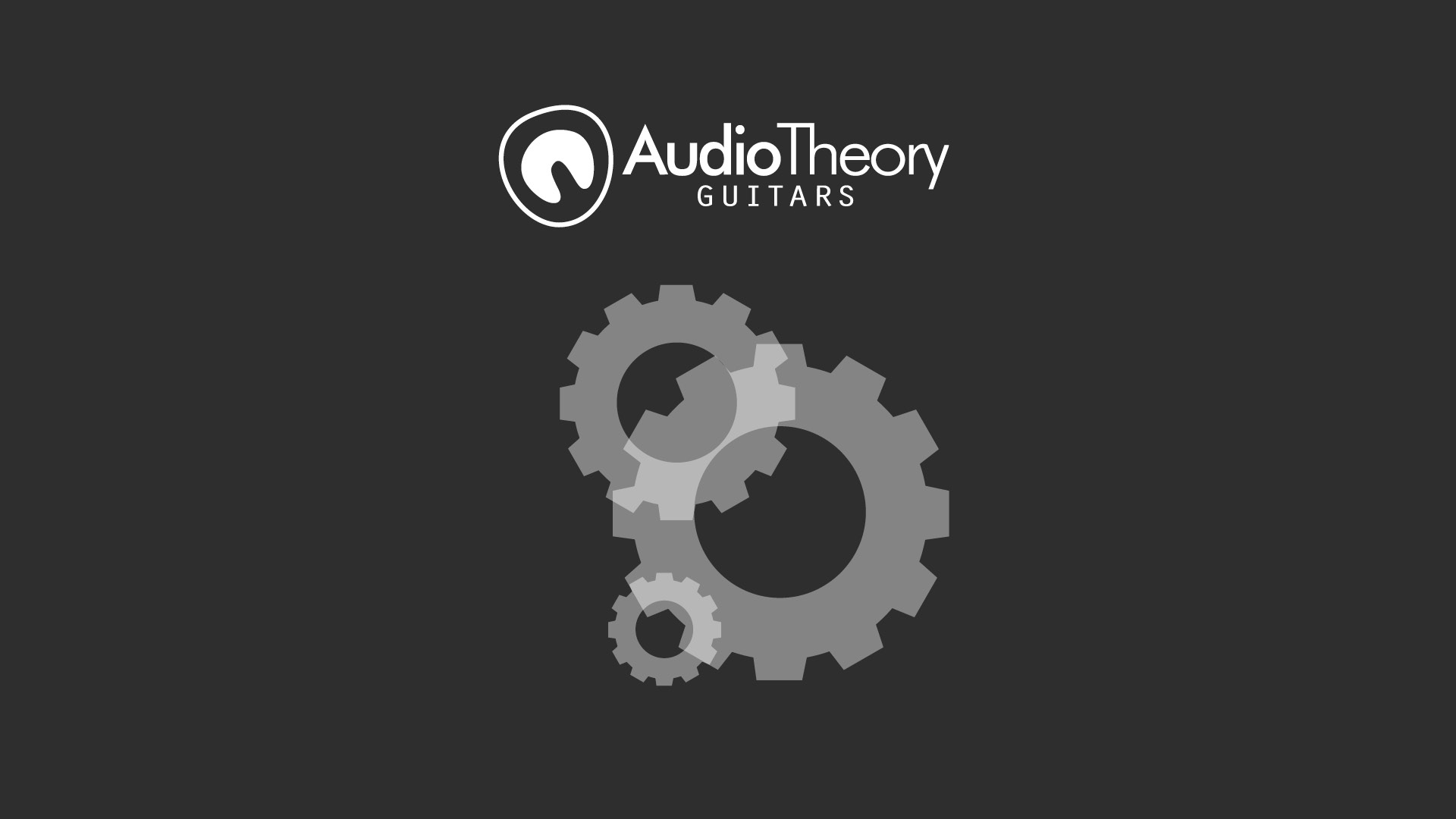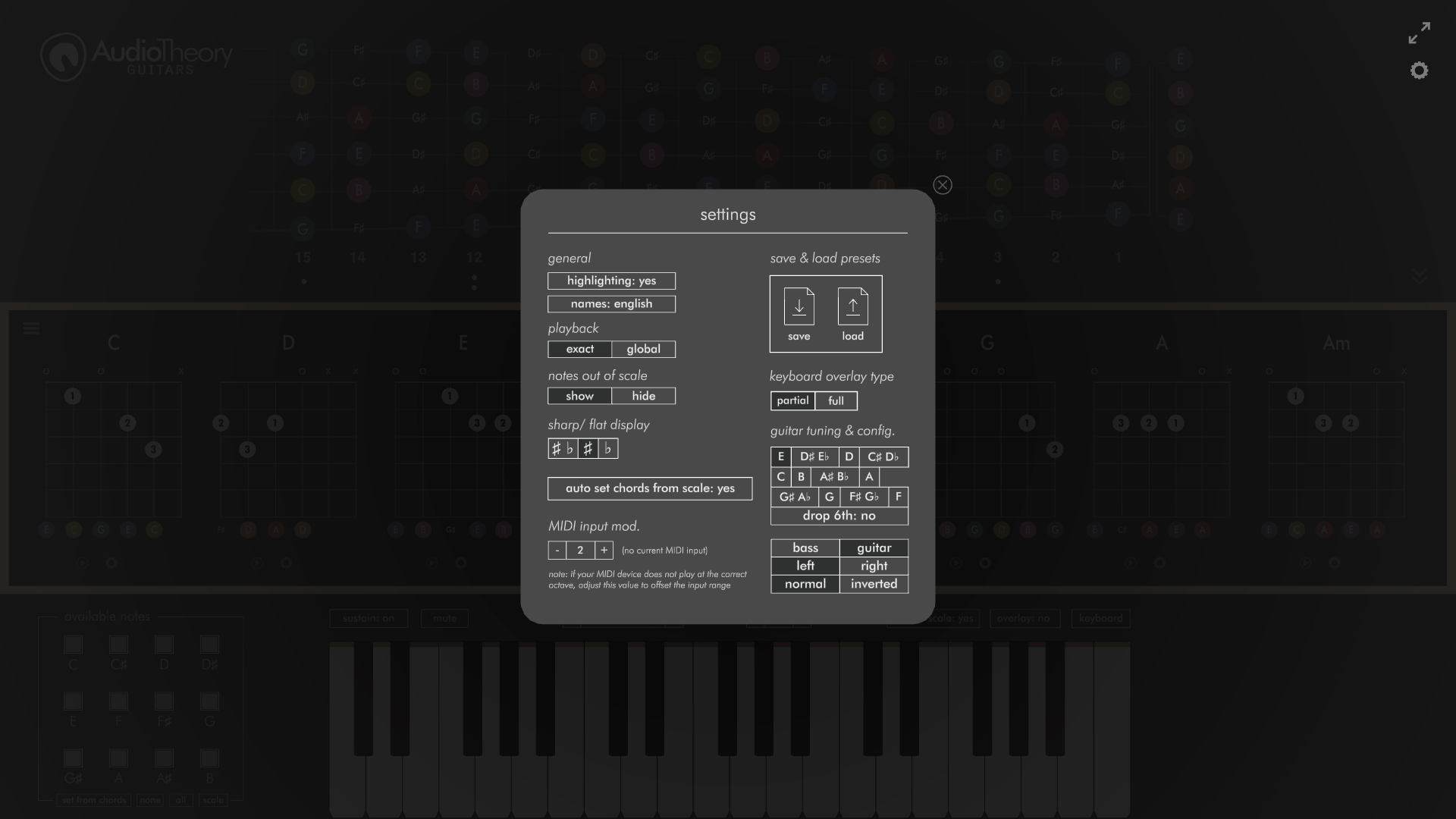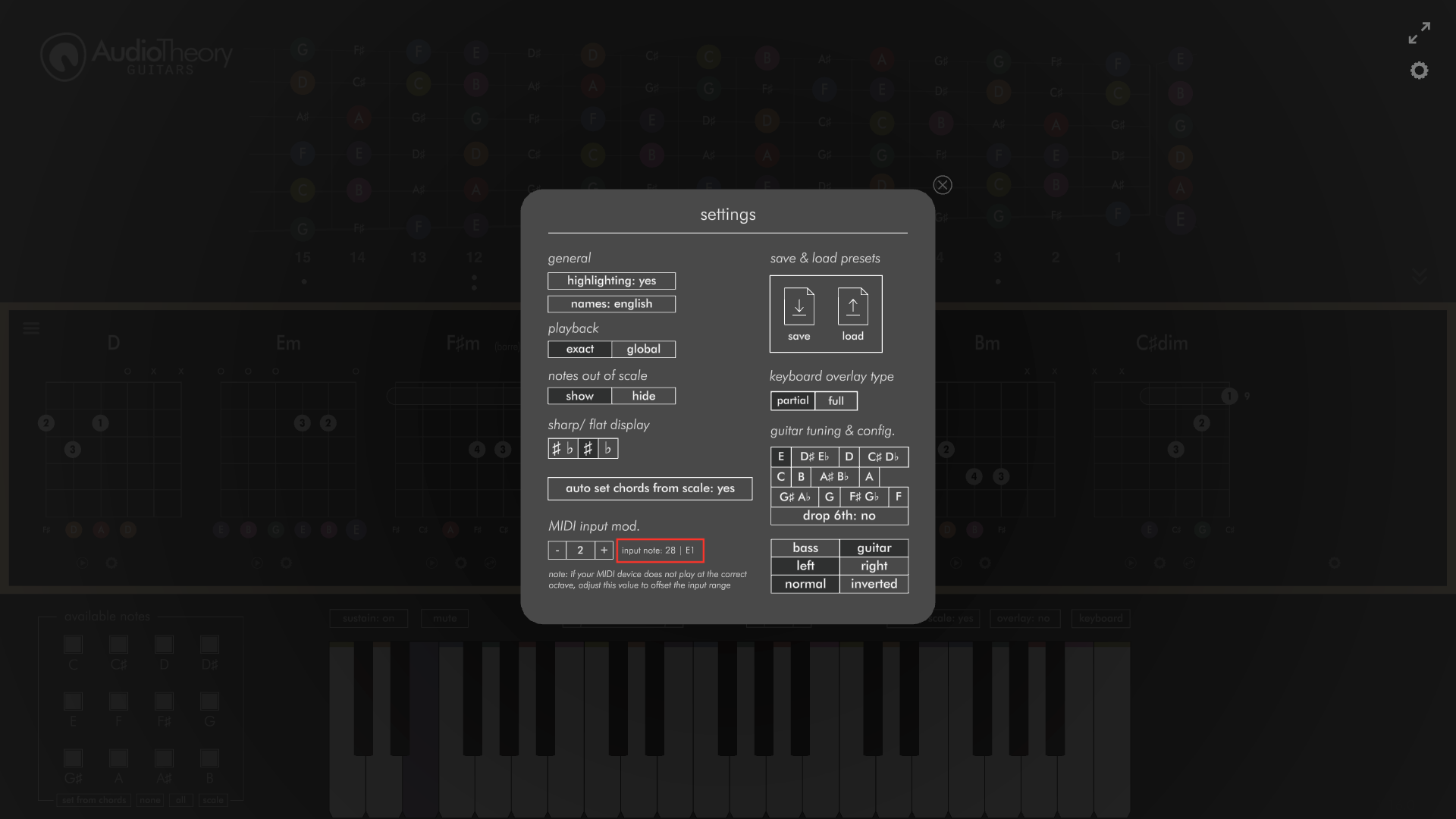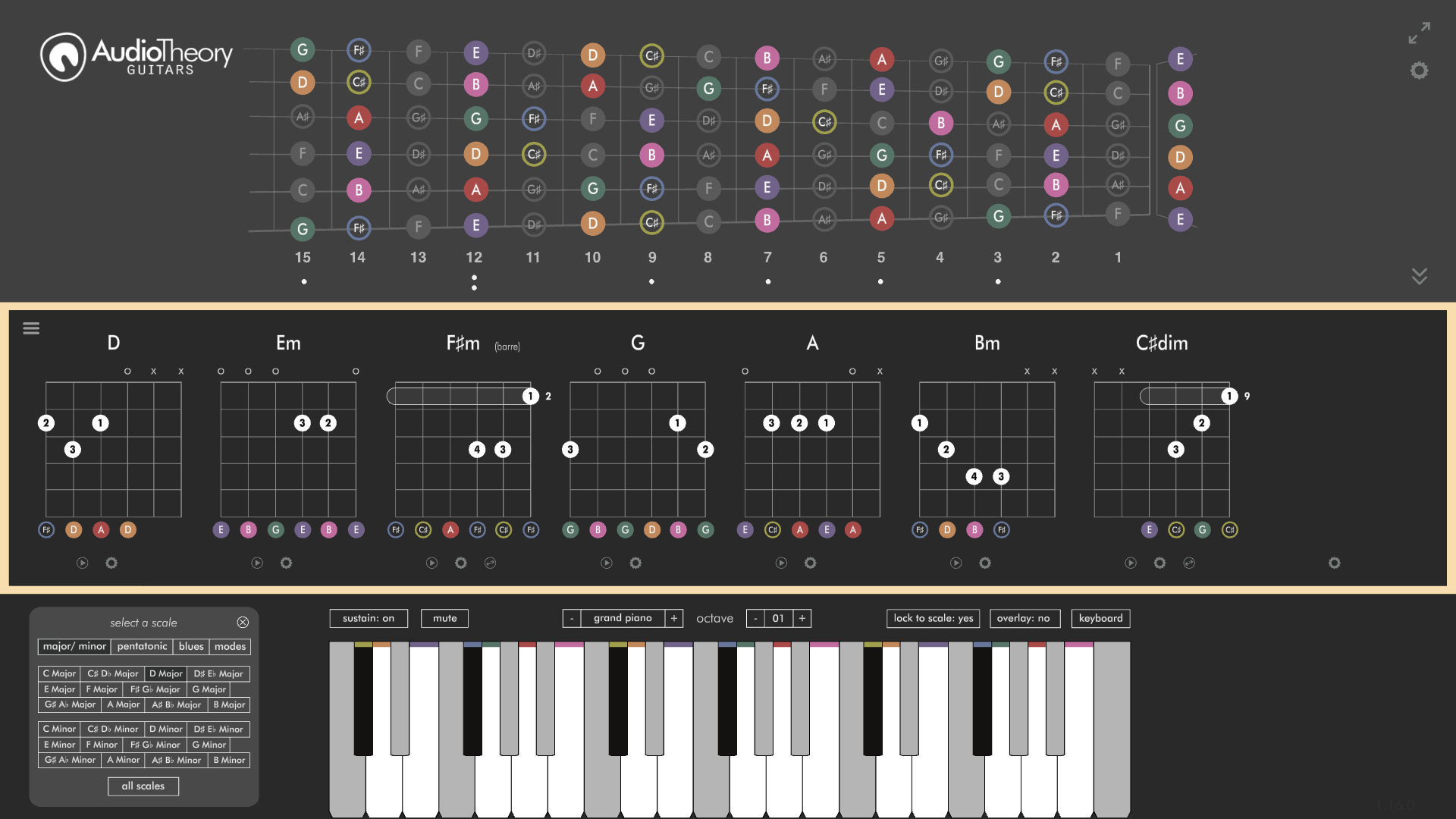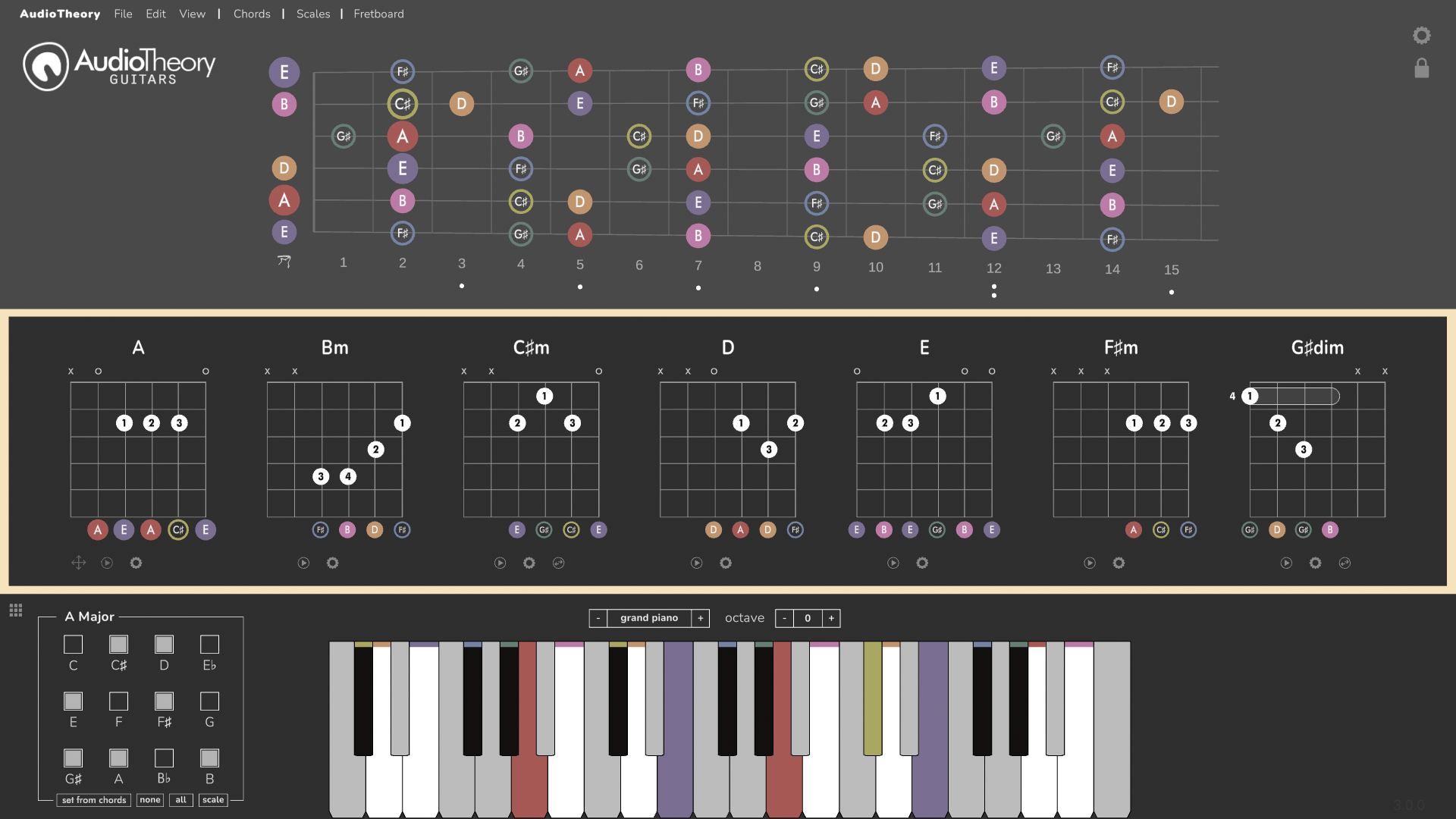AudioTheory Guitars version 1.16.0 is a reworking of the application settings, which is very exciting because it improves the ways you can customise and control the software.
The new settings popup
Swapping over to new, much larger popup has solved a whole bunch of problems. There is now a lot more space, giving room for the current settings to breath and making it easy to add in some extra stuff there wasn't previously room for.
So let's have a look at what's changed...
–The options for saving and loading a preset now come complete with some cool icons (the same as those used in AudioTheory Grids!)
–Guitar config. now sits as part of the single popup view (rather than in its own separate tab).
–The keyboard overlay type (previously indicated by a button next to the keyboard icon) now has its own dedicated settings toggle, with options for the full and partial overlay.
And here's what's new...
–There is now an option to turn off the feature where chords are auto loaded with a scale preset (introduced in
version 1.15.0).
–The way that MIDI input is handled has been reworked and there are now new settings in place to support this. The main octave (the one just above the piano keys), was previously sensitive to MIDI input, essentially requiring the MIDI device's own octave range to match whatever was set here. This is now no longer the case and the octave here is purely for playback.
What this last point means is that he MIDI input range is now configured separately (in the new settings popup). The big advantage of doing things this way is that you can ensure everything is synced correctly in the settings and then adjust the main piano octave without the need to also change octave on the MIDI device.
There is a new plus/ minus selector you will find in the settings under the name 'MIDI input mod'. If your MIDI device is not registering at the correct octave you can adjust this value (and/ or the octave settings on your device itself) to get the two in sync. Plus, if you are ever experiencing issues with MIDI input, there is also a message here that will log any MIDI input that the application receives.
This displays as both a raw input value as well as the target note to play, and you can use this info to easily debug any issues with MIDI playback. The note on the far left of the piano is C1, so if the note on the far left of your MIDI device is returning C(-1) you won't receive any output as you're playing two octaves too low! This can be fixed by either increasing the MIDI input mod. by +2, or also by increasing the octave on the device itself by +2.
You might be wondering if these more comprehensive MIDI options are in part due to the fact that MIDI input is a key component of the upcoming
AudioTheory Piano Keys. The answer is yes, and I'm very please to also bring it back into AudioTheory Guitars too.
There's also a couple more miscellaneous features that have made their way into this update too:
–The current scale is now highlighted on the mini selector when it's open.
–The scale tab selector now remembers its last used position
All updates are free for owners of AudioTheory Guitars. If you purchased directly then you can download the latest version from your Gumroad account.
For Steam users, new updates can be downloaded through the Steam client.
For new customers, you will be purchasing and downloading the latest version.
